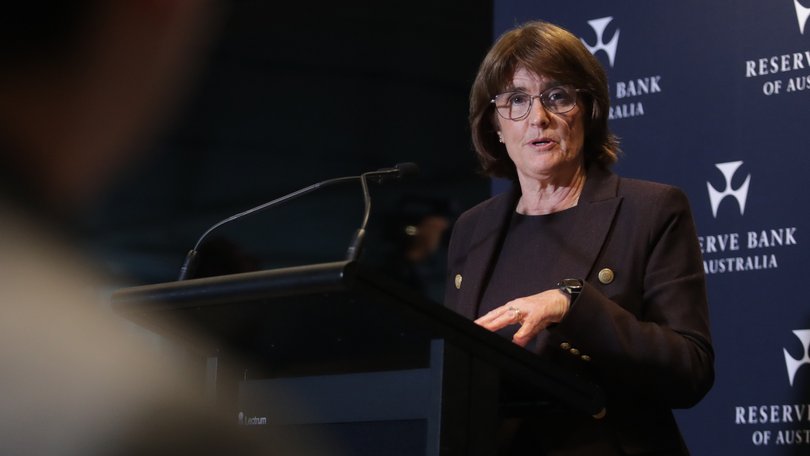RBA interest rates: Underlying inflation at lowest level since late 2021
Homeowners hoping for a third interest rate cut could see relief within weeks after Australia’s inflation slowed further.

Homeowners hoping for a third interest rate cut could see relief within weeks after Australia’s inflation slowed further.
The Reserve Bank’s preferred measure of inflation dropped from 2.9 per cent in March to be 2.7 per cent in June, according to the Australian Bureau of Statistics on Wednesday.
That was the slowest annual pace of underlying inflation since late 2021.
Sign up to The Nightly's newsletters.
Get the first look at the digital newspaper, curated daily stories and breaking headlines delivered to your inbox.
By continuing you agree to our Terms and Privacy Policy.And it was welcome news for battlers eager for mortgage relief, because the figure was near the RBA’s projection of 2.6 per cent.
Plenty of economists now predict a rate cut when the central bank next meets on August 12 — even after being caught wrong-footed by a surprise hold earlier this month.
“We suspect that today’s data will come as something of a relief to the RBA,” Westpac chief economist Luci Ellis declared.
“By cementing the inflation case to cut, it removes any awkwardness around the signs of a renewed softening in the (jobs) market.”
ANZ, AMP and UBS also expect a rate cut in August.
Macquarie Bank got ahead of the pack on Monday by lowering its two-year fixed rate mortgage to 4.99 per cent, according to Compare The Market.
But despite the deluge of pundits promising a cut, the “cautious” RBA has shown itself more than willing to ignore pressure and hold rates. That’s because inflation can bounce back fast when relief flows too quickly.
Betashares economist David Bassanese — among the few who tipped a hold in July — backed in a move next month.
“Although this is a touch higher than the Reserve Bank’s May forecast . . . my view is near enough is good enough and an August rate cut now seems a done deal.”
Also optimistic was Treasurer Jim Chalmers, who said the news was “better than expected”.
“It’s an outstanding result which confirms we are sustainably in the band with substantially lower inflation.”
Rent, insurance and home building costs slowed, according to the ABS. Headline inflation — the full basket of consumer prices — dropped to 2.1 per cent and was the slowest pace since March 2021.
Yet Perth had the hottest price rise of any major city at 2.7 per cent.
Cost of living pressure remains evident at the dinner table.
“Food inflation stayed elevated due to higher prices for fruit and vegetables, up 4.6 per cent compared to 12 months ago,” ABS head of prices statistics Michelle Marquardt said.
“Other notable price rises over the past 12 months were for eggs, up 19.1 per cent as supply has been affected by bird flu outbreaks.
“Coffee, tea and cocoa prices rose 9.4 per cent, with lower supply from major overseas coffee bean growing areas.”
Financial markets have been heavily tipping an August move, even after RBA governor Michele Bullock warned that the updated inflation data would be crucial.
Markets had also forecast the cash rate would gradually drop to 3.1 per cent and remain there until the end of next year. It is now 3.85 per cent.
